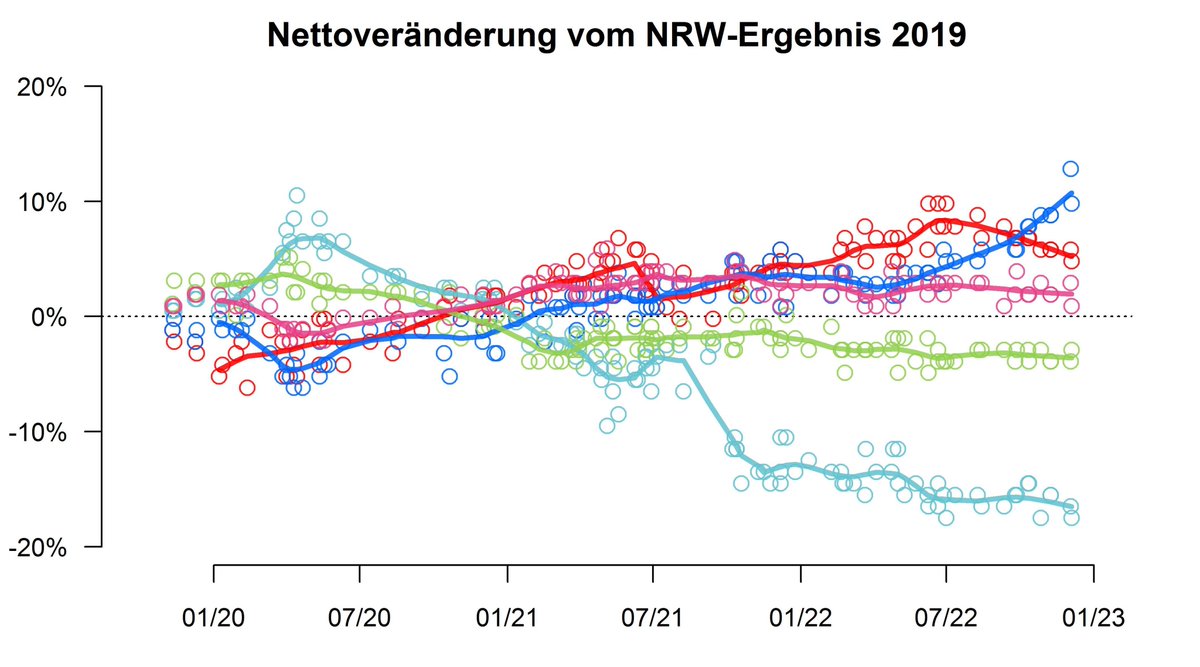
2.5 years after the #Ibiza scandal the FPÖ is about to top the polls in Austria again.
What happened? A 🧵 with data ...
What happened? A 🧵 with data ...

1. Part of this is, simply, what political scientists call the costs of governing: Government parties (ÖVP, Greens) lose support, while opposition parties (SPÖ, FPÖ, Neos) gain support. Here is the net change from the 2019 election where this pattern becomes clear: 

2. Yet, as you can see, even though the government parties start losing support from mid-2020 (Covid!), the FPÖ scores only a few points above its 2019 result (16%) until the spring of 2022. From then on, however, there is a steady upward trend until today.
3. This trend must hence be related to more recent developments. One obvious candidate is the fallout from Russia's war on Ukraine. Public opinion in AT has soured considerably on the EU sanctions, and the FPÖ has been the only party in parliament to oppose them consistently. 

4. There have been ongoing corruption investigations and revelations against (mostly former) leading members of the ÖVP. However, its doubtful that the FPÖ has gained much from this, since the party lost the ownership of this issue a while ago and has most likely not regained it.
5. Another potential driver is the increased salience of the immigration issue. Arrivals of asylum seekers in Austria have gone up notably, and there is typically a robust correlation between immigration salience and FPÖ strength. 

6. Also, media attention on immigration has increased *a lot* in recent months - which is likely an important driver of immigration salience among voters: 

7. To sum up, Austria's government parties have lost support, already following Covid, but especially since corruption allegations hit the ÖVP in 2021. However, the FPÖ's recent rise is more likely due to fallout from the war in Ukraine and the return of the migration issue.
• • •
Missing some Tweet in this thread? You can try to
force a refresh




